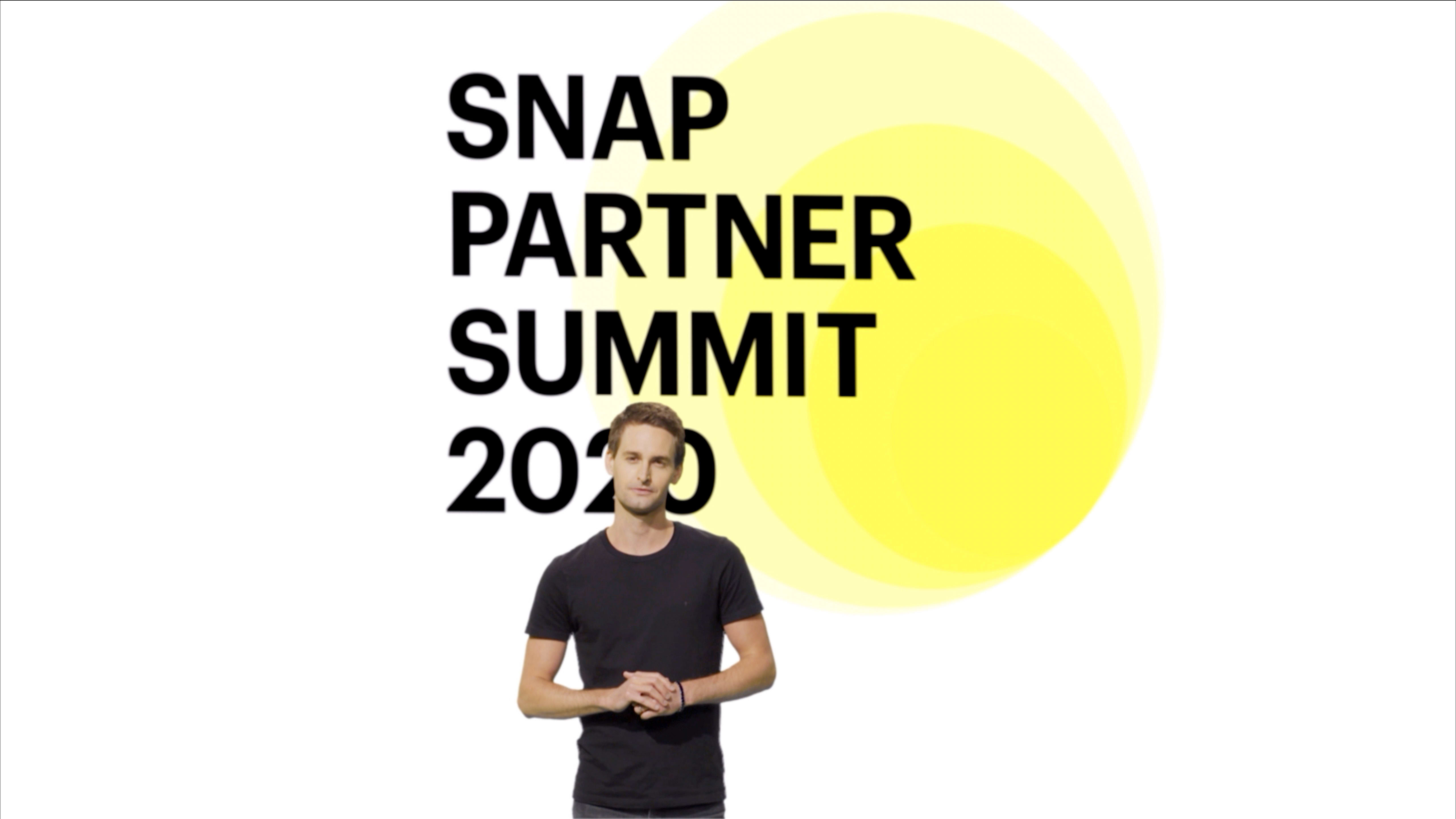In this screengrab, Evan Spiegel, CEO of Snap, Inc., takes the stage at the virtual Snap Partner Summit 2020.
Getty Images
Snap said it’s seeing positive momentum in the ad market, including in the brand advertising segment that struggled in the early days of the the coronavirus pandemic. The company also said that Q3 results were bolstered by advertisers looking for “platforms who share their corporate values,” an oblique reference to Facebook‘s content moderation practices during major national events such as the George Floyd protests.
The company’s shares rocketed up more than 20% in after-hours trading after the company reported Q3 earnings, revenue and daily user counts that all beat expectations.
Chief Business Officer Jeremi Gorman said in prepared remarks that Snap was seeing “the beginnings of a recovery from brand advertisers, and continued resilience from direct response advertisers” in the third quarter.
Snap worked with advertisers in the quarter to adapt in a time where many consumers were shopping at home — for instance, using Snap’s augmented reality tools to offer consumers virtual “try-ons” as dressing rooms at many retailers remain closed and while there were new precautions around sampling products like makeup.
As economic fallout from the pandemic started to hurt advertising budgets early this year, performance-oriented, or direct-response (DR) ads, stayed stronger than other forms of advertising. That DR advertising includes methods that drive consumers to take an immediate action, like downloading an app or buying something from an e-commerce site.
In contrast, brand advertising typically communicates more what a company is about or what it does, rather than trying to drive immediate sales. UBS analysts said in a recent note that while direct-response has led the recovery, brand advertising has been slower to return.
In her prepared remarks, Gorman also said brands and other marketers used the “period of uncertainty” as a time to evaluate their ad spend. In particular, Facebook has come under fire in recent months for its handling of hateful content and misinformation, spurring some advertisers to boycott the company over the summer.
“We saw many brands look to align their marketing efforts with platforms who share their corporate values,” she said. “This gave us an opportunity to engage with advertisers and agencies in real time to ensure that our existing partners as well as new prospects understood our offering in relation to our values.”
She said the company’s sales team held conversations with executives to discuss the company’s brand safety positioning and privacy principles.
“We implemented a strategy to ensure advertisers investing in Snap found early and sustained success on our platform as they scaled with us, and we believe that the customer service our teams provided, the alignment on our brand safety principles, and the strong ROI that our advertising partners achieved all contributed to our growth this quarter,” Gorman said.
